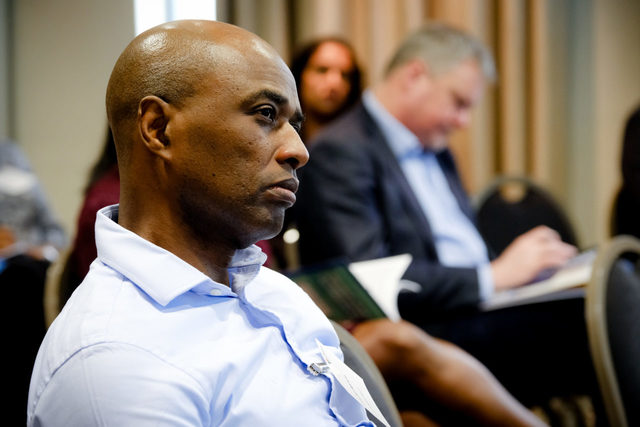Leslie talks about the latest evolution of their HR model, the implementation of the company's integrated systems platform on SAP and the impact on their businesses.
Leslie Rance is a business leader, not just a functional leader, so it is unsurprising that he has got into HR in what others might perceive as an unconventional way. He has not formally studied HR but has taken charge of people-related processes and human capital development in line-leadership roles for the better part of 25 years of multi-national experience.
His academic and professional career began in information technology and over the course of his career, has traversed into different business areas, including corporate strategy and planning, public affairs and general management.
In his early working years, he spent a lot of time designing systems for different business areas, and as he learnt more about the various business processes, he grew curious about how businesses function overall. That piqued interest drove him to take on different roles outside the IT field.
His first 10 years working in corporates were spent at Anglo American, across business units in Zimbabwe, South Africa and the United Kingdom. The last 15 years have been with British American Tobacco (BAT), similarly across multiple business units and geographies.
He made the significant shift from mining to fast moving consumer goods (FMCG) primarily because he felt it essential to be a leader that could operate not only in different business functions and geographies but also industries. So, in his HR role, Leslie brings a distinct and clearer understanding of the drivers of business and the role that functions should play to enable a company’s competitiveness.
[chro-cta slug=hr-indaba-cpd-tv]
On diversity and talent
Leslie sees diversity and talent as being integral to the work they do at BAT.  “For us, diversity is not removed from Talent, it is one and the same thing. The strength of our company’s leadership is not in being homogeneous but in being open-minded to leverage our differences. Being one of the world's most global companies, we certainly understand diversity very well, and thrive in the strength of it, in all its forms. We’re making a lot of progress towards developing the next generation of outstanding, capable leaders with both a strong domestic and international outlook to steer our companies in all situations. On the gender diversity front, we are proud of the progress we are making. The South African business is led by an exceptional woman, the first ever, as is BAT in Zimbabwe, another first. Other examples include Mozambique, Malawi and Namibia, where all our general managers are locals," says Leslie.
“For us, diversity is not removed from Talent, it is one and the same thing. The strength of our company’s leadership is not in being homogeneous but in being open-minded to leverage our differences. Being one of the world's most global companies, we certainly understand diversity very well, and thrive in the strength of it, in all its forms. We’re making a lot of progress towards developing the next generation of outstanding, capable leaders with both a strong domestic and international outlook to steer our companies in all situations. On the gender diversity front, we are proud of the progress we are making. The South African business is led by an exceptional woman, the first ever, as is BAT in Zimbabwe, another first. Other examples include Mozambique, Malawi and Namibia, where all our general managers are locals," says Leslie.
On succession planning
Very closely tied to diversity and talent is leadership succession. The BAT Group is rigorous about performance management, people-development, culminating in strong leadership succession. They are very forward-looking in this regard. At any given time, the company has a very good handle on how their talent will evolve from the most senior roles to those of junior managers. They understand how people are to be developed, using the 70:20:10 principle of on-the-job development, learning through others, and formal training.
Says Leslie:
“Our plans are granular, and will feature who is due for promotions, to what roles, who need international experience, who is being brought back from assignments to lead what areas of the business, and within what timelines. Our succession plans are forecast for all senior management and key roles five years forward."
Evolving HR models and adopting new technology
According to Leslie, one of the most important parts of the journey that BAT has come through right now is that of evolving its HR model and leveraging world-class technology platforms. BAT in Southern Africa recently went live with SAP’s Success Factors and, being a large global company, they have the scale that most companies don’t. This is an advantage when looked at from the perspective of having globally located shared service centres across logical time-zones, skills availability and cost-efficiencies. They have had shared service centres before, but this phase of evolution has resulted in further consolidation of these shared service hubs and greater professionalisation of capability.
Their hiring is driven through the global hubs, where managers are empowered to raise hiring requests, have candidates identified and contracted. The entire process is driven by service level agreements between the line manager, the shared service centre hub and the candidate. All information about an employee and in the case of managers, their teams, is at their fingertips. Online training is also now a keystroke away on platforms such as Lynda.com and Harvard Manage Mentor.
"We have taken the bureaucracy out of HR processing, put line managers and the employees in the driving seat with world-class technology, and empowered them to own their development and people-management decisions directly," says Leslie. "SAP enables one to do performance management, talent management, recruitment, remuneration and compensation, record our learning and development all on one platform. Our changes continue to allow all our business, big or small, to access the same HR capabilities as their colleagues anywhere else in the world."
Centres of excellence
In addition to the shared service centre focused on consolidation and improvements, BAT also has centres of expertise for reward and benefits and talent management. "Our practices, processes and systems are streamlined in the group to always be attractive to our current and future employees, to drive consistency in their use and simplification while being locally relevant. Our centres of expertise bring the best of BAT’s thinking and market practices into these areas. Our front-facing human resources, known as business partnering, now invest more time in the business, looking to leverage our talent and capabilities for competitive advantage. We have taken a lot of the administrative burden away from this cadre of HR practitioners who can now enjoy delivering business value," says Leslie.












